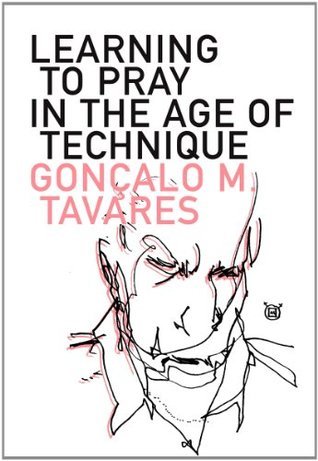What do you think?
Rate this book


342 pages, Paperback
First published January 1, 2007
“Pertenecían a esa clase hombres para los que el arma y la convicción transmitida al prójimo de que puede utilizarla en cualquier momento forman parte de los argumentos que se ponen sobre la mesa.”Para él, la vida es lucha, confrontación. La naturaleza es nuestra enemiga, nunca hay que fiarse de un día de sol, “alguien limpiaba cuidadosamente el cadalso la víspera de que lo pisara la víctima”. El estado normal entre los seres humanos es el de odio, el de “la desavenencia, el desajuste entre opiniones, objetivos, deseos y costumbres”. Lenz, educado para matar antes de que le maten, eligió, por devaneo intelectual nos dice Tavares, ejercer la medicina y afrontarla, por genética, educación y bisturí en mano, como si de una guerra se tratara. Una guerra contra la enfermedad, contra la naturaleza que se rebela, que trastoca el orden, una guerra en la que solo se pueden ganar batallas menores y de individuo en individuo. Por eso, una vez alcanzado el zenit de su técnica quirúrgica, decide cambiar al enfermo individual por el enfermo social, la medicina por la política, la guerra por la guerra: “Todos querían seguridad, pero faltaba que se sintieran más amenazados.”
“Dadme una razón para no matar a los más débiles”Él era de los fuertes. Él pretendía ser el sujeto de un código moral propio, que llevara su nombre, que solo a él se aplicara. Su reino no era el de la debilidad, la bondad era un sentimiento despreciable. El sufrimiento ajeno debía manejarse con distanciamiento, lo verdaderamente moral era la eficacia, la competencia. Su mundo era el de las “máquinas de efectos asombrosos, de las técnicas médicas cada vez más modernas, de los trenes rápidos”.
“Todos los hombres se hallaban sometidos a la misma ley, y la ciudad y cada uno de sus habitantes se enorgullecían de ello. Sin embargo, era evidente que la ley más importante, la ley básica, era otra, ajena a la de las frases que sobre el papel intentaban crear equilibrios entre dos hombres. Había una jerarquía pragmática que aplastaba sin contemplaciones la jerarquía teórica que las leyes intentaban imponer. De hecho, el problema de las leyes, en opinión de Lenz, era precisamente ese: no se imponían, sino que argumentaban.”Pero la fortaleza de Lenz no era tal. Desde que siendo un niño su padre lo inició con la criadita bajo su presencia, necesitó siempre del observador durante el acto sexual. Locos y vagabundos eran sus preferidos, los únicos que actuaban en libertad al estar al margen, al no tener observadores, pues bien sabía que la moral privada se diluye ante la moral pública cuando hay observadores. Lenz se siente débil en esos actos, como manejado desde fuera, como poseído. No sería la única vez, Lenz no tuvo la fortaleza de su padre para evitar la decadencia con el suicidio.
“Lenz Buchmann tenía un cáncer. O, dicho de un modo más exacto: había dejado de ser propietario, era el cáncer el que lo tenía a él. El poderoso Lenz se había convertido en un objeto… no lograba pensar en nada más, nada era importante. Se había convertido rápidamente en un guardián exclusivo de sí mismo.Termino con esta maravilla mi recorrido por El Reino. Capítulos breves, estilo seco y cortante, nada de florituras, ni una sola descripción, algún nombre germánico, una ciudad desconocida, supuestamente la misma en los cuatro libros, literatura simbólica, de ideas, sin apenas tramas. Todo duro, frío, directo, genial.
“La electricidad, decía Lenz, había convertido en ridículas ciertas intuiciones sobre lo divino”


to prolong one's lifespan, that most existential of questions, was- lenz believed- merely to provide an additional period for the incubation of hatred, for the incubation of the battles and disjunctions between the opinions, aims, and customs of various human beings. it was quite clear to lenz, each time he saved a person's life by way of some surgical procedure, that he was saving only one man- a statistical nonentity. statistics are a precise way of demonstrating indifference.